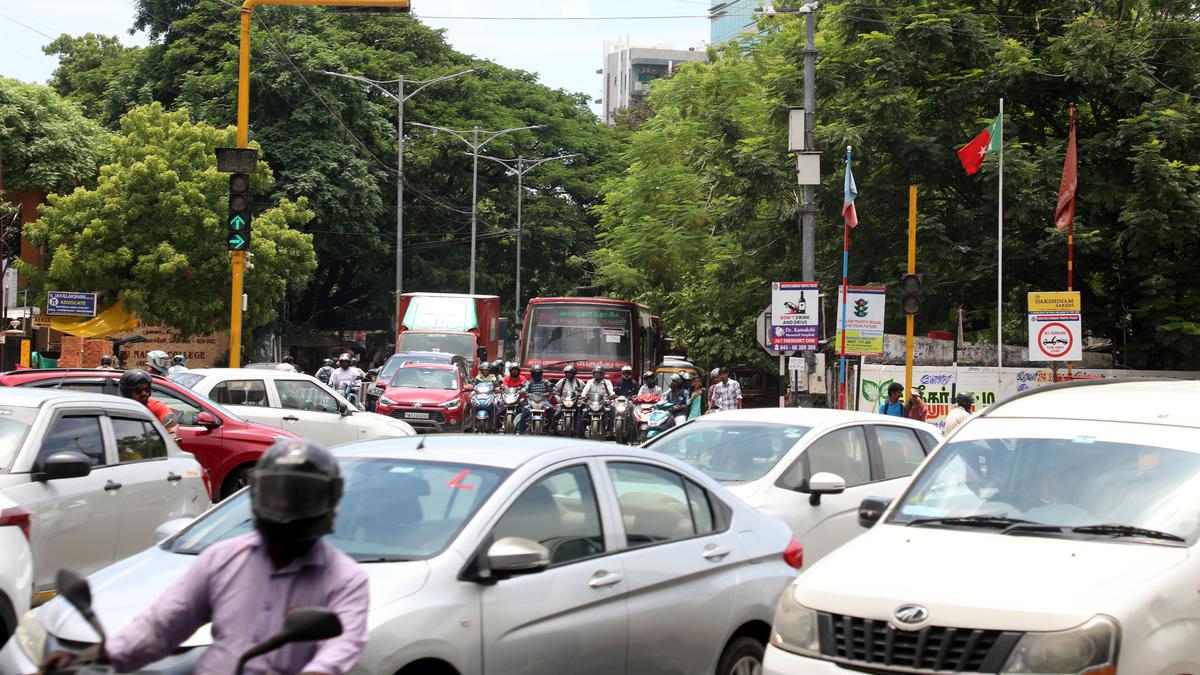
Peak-hour trouble at two junctions on either side of Phoenix Mall in Velachery
The Hindu
Peak-hour trouble at two junctions on either side of Phoenix Mall in Velachery
Anitha and her daughter spent nearly an hour travelling from Guindy to the Velachery bus terminus in an autorickshaw, inhaling the exhaust fumes from thousands of vehicles along the Velachery Main Road.
The Five Furlong Road junction and the Guru Nanak College junction, and Phoenix Mall and all the smaller establishments that have mushroomed around it, could tire any motorist taking the road at morning or evening peak hours.
If the traffic policemen are not present at these junctions, the “unlawful” motorists, who violate the signal, especially those taking the right from the Five Furlong Road, could prolong the delay.
“Earlier, there was no signal at weekends. It used to be crazy because motorists, especially the four-wheelers, would block the road at the Five Furlong Road junction, leading to chaos between the two junctions. Now, there is some sense as the signals are always on,” says P. Ravi, who comes home from Bengaluru at weekends.
“Even now, there are two signboards telling motorists not to make U-turn at the Five Furlong Road junction. They have to go about 50 feet further. But even the educated people continue to block the road even after seeing the signboards. Also, the two-wheeler-riders remove the barricades near the mall and keep crossing from one side to the other,” says Jayapackiam, who drives her car on the road frequently.
Regular road-users say the traffic police should prohibit U-turn of vehicles trying to reach Phoenix Mall as this also adds to the congestion at the Guru Nanak College junction. Ironically, the traffic policemen could be seen almost all days at the same place not to regulate but to fine vehicles that hold up the traffic.
“It is intolerable at peak hours. It takes half-an-hour to reach Phoenix Mall from the Five Furlong Road junction,” says advocate M. Radhakrishnan, who has his office in one of the lanes. “There is no other route [to reach Guindy or Saidapet],” he says.





















 Run 3 Space | Play Space Running Game
Run 3 Space | Play Space Running Game Traffic Jam 3D | Online Racing Game
Traffic Jam 3D | Online Racing Game Duck Hunt | Play Old Classic Game
Duck Hunt | Play Old Classic Game











